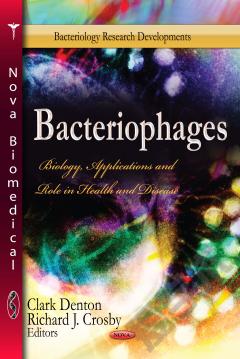Bacteriophages: Biology, Applications and Role in Health and Disease
Bacteriophages are obligate parasites that require bacterial hosts to replicate. Phages initiate infections by first attaching to the surface of bacteria and injecting their genomes into host cells. Virulent phages then hijack the host's cellular machinery to direct the production of phage virons that burst from the cell leading to bacterial lysis. In this book, the authors discuss the biology, applications and role in health and disease of bacteriophages. Topics include the varied potential roles of bacteriophages in the production of food from animal sources; phage therapy, biocontrol and commercial microbiology; abortive infection as a killer bacteriophage resistance strategy; bacteriophages as biocontrol tools of pathogens in meat and dairy products; bacteriophages as probiotics and decontaminating agents for food products; use of bacteriophages as surrogate indicators of viruses in water; promoter sequences for bacteriophage RNA polymerases; the use of bacteriophages in bacterial food pathogen regulation; and the interaction between bacteriophage and its bacterial host receptor, LamB.
{{comment.content}}








 京公网安备 11010802027623号
京公网安备 11010802027623号